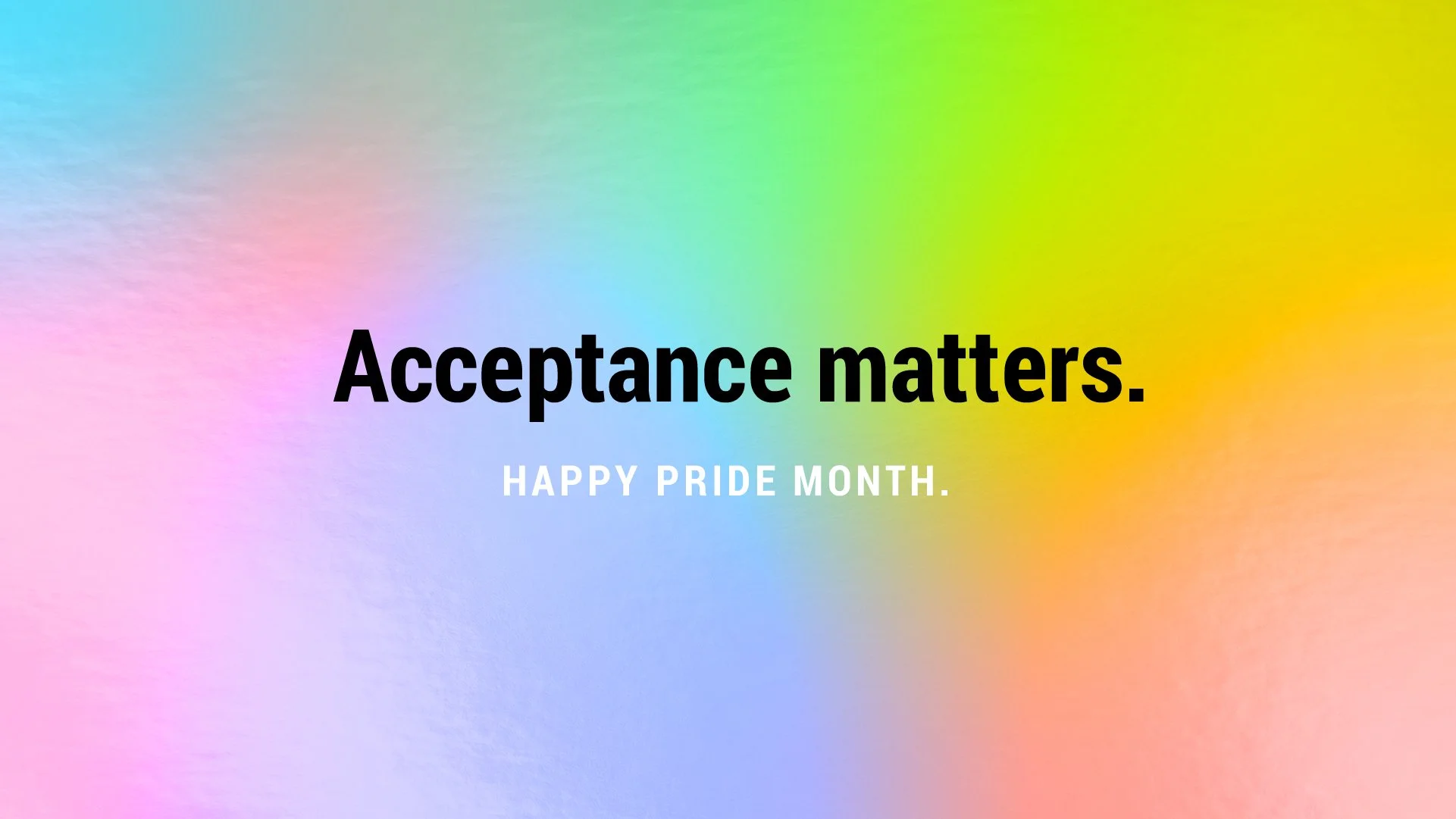Performance, Meaning, and Authenticity in 2022 Pride Marketing
This year, Pride feels different, right?
It’s always been a time to celebrate our progress, to reaffirm our commitments, and to look forward to a more perfect world. But it’s also a time for honesty, and there’s no reason to demure or sugarcoat this: At this moment, our political ecosystem is again making life very difficult for LGBTQ+ people, as growing waves of anti-queer sentiment crest and crash across the country. Queer people feel it, their allies feel it, and it’s genuinely getting scary out there.
Against this backdrop, Pride feels more contentious and dangerous, and that makes it all the more necessary.
As allies first and marketers second, we see our role at Lemonade as threefold:
To recruit, retain, and support a diverse team, and to always have their back. This means ensuring our internal culture and the work we do never falls into facile heteronormative expectations or tropes, and that all voices are valued and heard.
To speak truth to power, however powerful it may be. As our Creative Director, Rowan Brooks, put it, “Allyship means calling out discriminatory behavior and challenging intolerant attitudes wherever I see it - even when it may feel uncomfortable for me to do so.”
To help our clients find meaningful pathways to communicate with and support queer communities, through campaigns, outreach, and charity in a way that is mutually beneficial, and neither performative nor predatory.
These are Lemonade’s Values, and They are Non-Negotiable.
And while we would support our LGBTQ+ family, even if it were bad business, the truth is that maintaining a company culture and workspace dedicated to these principles allows employees to come to work everyday as their entire, authentic selves.
Being your authentic self should be a basic human right at this point and it’s sad that we have to even bring it up in 2022. But like we said, we aren’t sugarcoating this and there are far too few spaces in which people can comfortably be themselves. At Lemonade, we do our absolute best to be one of those spaces.
Creativity and community thrive in these spaces and, as a marketing agency, we want each and every employee coming to work authentically, unleashing their own unique voice, vision, and passion into the work we do.
We Believe Marketing Can Drive Social Change
As marketers, we can play a role in shaping culture and when done right, marketing can accelerate necessary social change.
One example should get at what we are talking about here...
In 1994, Ikea aired what, to the best of our knowledge, was the first national commercial depicting a gay couple. Go back and watch it if you have time, it feels appropriately grainy and dated but, even 28 years later, it is undeniably sweet.
There is simply no way to understand what it felt like to watch that commercial in 1994. For queer couples who rarely received any public acknowledgement of their love that did not pathologize it, it was nothing short of revelatory. Against the backdrop of DOMA and Don’t Ask, Don’t Tell, it treated the couple with affirmation and respect and made the world seem just a little less hostile.
For straight people, it offered a portrait of gay love that was not frightening or alien—they seem just like any typical heterosexual couple of the time, all the way down to those insane fashion choices.
There is of course no way to quantify the commercial’s real-world impact, but ask a queer person of a certain age if they remember this (or if they remember the Subaru commercials with the Xena license plate in them) and they will, for the most part, nod familiarly.
By normalizing queer love and commitment, by blazing a trail into LGBTQ+ advertising, and by making often unseen people feel seen, this commercial did, as we see it, accelerate necessary social and cultural change.
Pride in 2022: Performance and Opening your Purse
Obviously, a lot has changed between then and now.
More and more companies have realized the monetary incentive for Pride marketing, and over the last ten years, we’ve seen rainbow-filled Oreos, genuinely heartwarming and touching spots highlighting the joy of familiar support, and a unicorn Frappuccino.
There are more people clamoring for LGBTQ+ people’s attention (and their disposable income), and breaking through the noise has become a challenge for corporate America. But it’s a challenge the right advertising agency can help meet.
A decade ago, changing a profile picture and throwing up a Pride post and hashtag was all it took because, at the time, publicly standing with a maligned community took bravery. Now, there are entire Twitter threads dedicated to calling out companies doing the “bare minimum” with such gestures, which today seem performative and hollow.
Especially since the Summer of 2020, queer consumers have been demanding that Pride advertising be accompanied by community-based actions or significant financial donations to worthy LGBTQ+ causes (“open your purse” is a common Twitter clapback to lip-service Pride posts).
But these days, even campaigns accompanied by an appropriate charitable donation or action (which, again, is just the right thing to do, even if it weren’t good business) are having trouble breaking through the din of Pride advertising that dominates June every year.
An Instructive Lesson in Pride Marketing via Burger King and Postmates
This has led some companies to go big, to generate buzz with shock value, a move that more often than not backfires.
This year, two, um, copulation-themed viral pride campaigns were received quite differently, and this goes a long way in showing how doing the right thing typically rewards business in the long run.
First, at this point we’ve probably all heard about Burger King’s Whopper-sized whoopsie–wherein they depicted Whoppers with two top buns, and Whoppers with two bottom buns– to which the backlash was swift and furious. People rightly pointed out that the ad displayed a staggering unfamiliarity with the mechanics of gay male intercourse (yet another reason for representation in advertising agencies), and that the campaign felt two cute by half.
More pressingly, however, Burger King had not earned enough credibility with its public action for people to shrug it off and laugh. As one commentator on Instagram asked, “WTF. What are you actually DOING to support the community? Aside from this MESS?” The ad was pulled, the agency apologized, and the outrage cycle found a new target.
And then there was Postmates’ Pride promotion, which offered customers a Bottom-Friendly menu (if you don’t know what that means, Insider offered an unintentionally hilarious explainer). Only available in New York and Los Angeles, the menu was obviously designed to make a big social media splash, and mission accomplished!
Sure, it might be a little cringe, and yes, there was criticism, but there were no calls for cancelation and no shaming, and also no small amount of support and appreciation.
While we can’t get into the mind of every LGBTQ+ consumer, we’d be willing to bet that the difference in reception came down to two key points, both of which are all about authenticity:
The Postmates video and campaign, as Postmates was quick to point out, was the brainchild of the company’s LGBTQ+ employees, who came up with the idea and shaped it along the way. This is how it has so many on-the-nose references that most every gay man would understand while smiling and nodding.
The video and the post accompanying it emphasize that this campaign is paired with a sizable donation to the Okra Project, a food collective in Los Angeles that supports Black trans communities. The donation is verifiably directed at an undeniably worthy and effective group that tangibly improves the daily lives of queer people.
Both points are equally important when devising an authentic, genuine, and meaningful Pride campaign in 2022—ensure LGBTQ+ creatives are in the room and make sure you put your money where your mouth is.
And remember, not all donations are created equal: Burger King did, in fact, sponsor a local Pride event, but such sponsorship feels self-serving—like we said it’s not enough to just get your name on the Pride poster anymore.
The Intersection of What is Right and What is Profitable
At Lemonade, we like to say that we thrive at the intersection of culture and commerce. At the same time, we also want to help our clients thrive at the intersection of what is right and what is profitable.
Everybody should be supporting their LGBTQ+ family because we are all humans and that is what decent humans do when they see their family in peril. But we would be bad at our jobs if we didn’t also recognize the ways that this support aligns with sound marketing principles.
Our biggest advice to our clients looking to reach LGBTQ+ consumers in authentic and meaningful ways is to be authentic and meaningful when they do it. Sure that sounds simplistic, but hear us out:
Be authentic. Don’t over claim or overplay your hand, or go merely for shock value as though Pride is just capitalism’s sassy best friend. Demonstrate that you see people on their own terms and they will see you on yours.
Be meaningful. Take action that legitimately improves people’s daily lives in meaningful ways. Charitable donations, public actions, community outreach—not just for the social cachet such action offers, but because it is the right thing to do. Oh, and also, don’t try to have it both ways.
People want to feel seen, they want to feel engaged, and they want to feel valued. That’s not something unique to the LGBTQ+ community, it is a part of our common humanity.
So, this Pride, as our LGBTQ+ colleagues, friends, and family face mounting threats to their safety and dignity, we reaffirm our commitments to them, to ourselves, and to our clients because it is, quite simply, the right thing to do.
Happy Pride!
*Lemonade has made a donation to the OLTT organization. OLTT is founded and led by trans Latinx immigrant women working for the intersectional wellbeing of their community in Houston, Texas. You can donate here.


